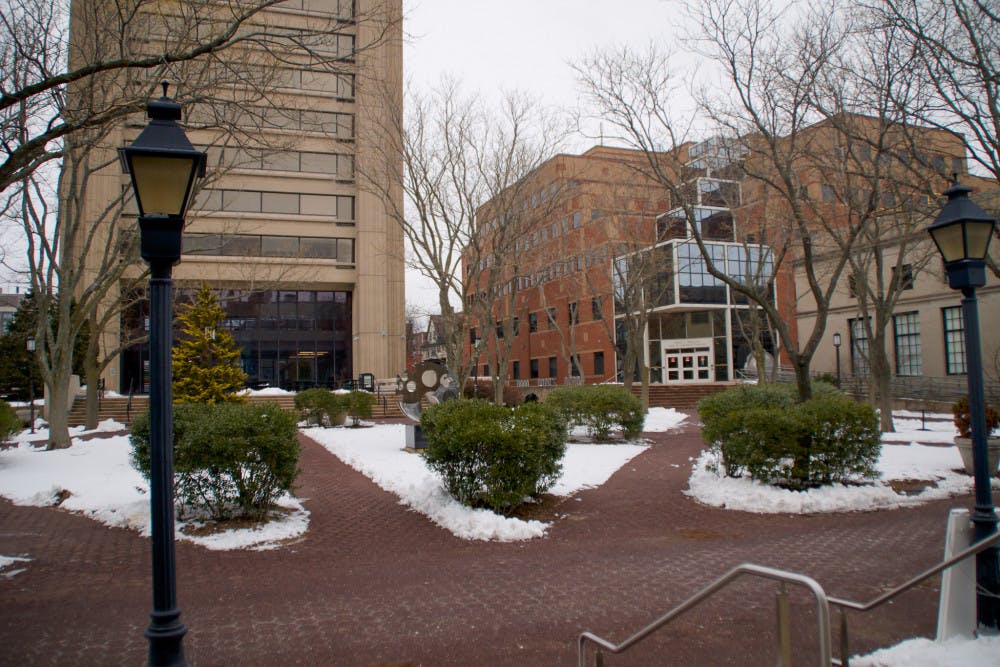With the 2020-21 academic year at Brown split into three semesters, academic departments have strategized throughout the year how to fairly distribute typical two-semester course offerings across the fall, spring and summer trimesters.
The Herald spoke with four different University professors on how their departments have handled this process.
The Department of Computer Science sought to ensure that every student had a way to complete introductory sequences if desired. This led the department to shift the two most popular intro sequences to the spring and summer semesters while still offering two other introductory courses in the fall, which sophomore, juniors, seniors and optionally, first-years could take, according to Kathi Fisler, professor of computer science.
Semester distribution for upper-level courses mostly reflected typical academic years, Fisler said.
Another one of the department’s challenges was organizing higher-level courses popular among sophomores and juniors. In CSCI 0320: “Introduction to Software Engineering,” for example, “there were some juniors, when they were doing their course planning, who had to make alternate plans around not knowing whether that key sophomore level course ... was going to be offered in the spring or the summer,” Fisler said. When the University confirmed that all students would be invited back to campus, the course, which was initially to be offered during the summer, was moved back to the spring in order to be available for sophomores and juniors.
“The juniors bore the brunt of not knowing what courses would be offered ... and the sophomores had to plan around when they were going to be here in the first place,” Fisler said.
In every decision about course distribution across the three semesters, Fisler said that the department wouldn’t be able to please every class year with the structure they ultimately chose. “My main sadness about all of this is that sometimes students would see what had happened to the schedule, and they would assume that we were being inconsiderate by not offering everything every semester,” she said. The department — discouraged from having any faculty teach three semesters — had to allocate new and returning faculty across the new calendar.
“I don’t think CS could have done a much better job than we did, given when we had information,” Fisler said.
For the Center of Language Studies, the three semester offering required the department to organize courses in such a way that all undergraduate students could progress through their language regardless of what semester they enrolled in, Jane Sokolosky, distinguished senior lecturer in German studies and Language studies and director of the Center for Language Studies, wrote in an email to the Herald.
“Undergraduates seem very keen on taking intensive language courses,” Sokolosky added. “We heard this repeatedly in our Language Panels so several departments continued or piloted double-credit intensive beginning courses during our three-semester academic year.”
Still, Sokolosky wrote that “for all languages with just one faculty member teaching the sequence, this (structure) was more challenging.”
The political science department also “spent a considerable amount of time last summer working with our faculty to transition to full or hybrid instruction in planning for this year,” Wendy Schiller, chair and professor of political science, wrote in an email to The Herald.
Schiller added that the department had to move “freshman courses from Fall to (the) Spring and Summer terms” in an effort to “balance course offerings according to the needs of the students who would be enrolled each semester.” The political science department is “offering a range of courses in summer 2021 that can meet the needs of students across (all) years of study,” she wrote.
Richard Arenberg, visiting professor of the practice of political science, senior fellow in international and public affairs and interim director of the A. Alfred Taubman Center for American Politics and Policy, has taught in the fall and spring, and will teach POLS 1100: “U.S. Congress” this summer.
From his home in Massachusetts, Arenberg remotely taught POLS 1120: “Campaigns and Elections” in fall 2020, and he is currently teaching POLS 1090: “Polarized Politics.” “All things considered … These courses have lent themselves well to the online instruction,” Arenberg said. He highlighted several new virtual features of his courses, such as maintaining a live Zoom chat box monitored by his teaching assistants and trying to be as available as possible for his office hours via appointment.
Arenberg also hopes to continue recording his lectures, in addition to posting Powerpoint slides on Canvas, once returning to in-person teaching. “I’ve gotten very good feedback from students … that (for) reviewing (and) preparing for exams … being able to go back and look at portions of lectures is very useful.”
Above all, Arenberg emphasized, “I really miss the direct contact with students, so I’m anxious to get back into the classroom.”

ADVERTISEMENT




